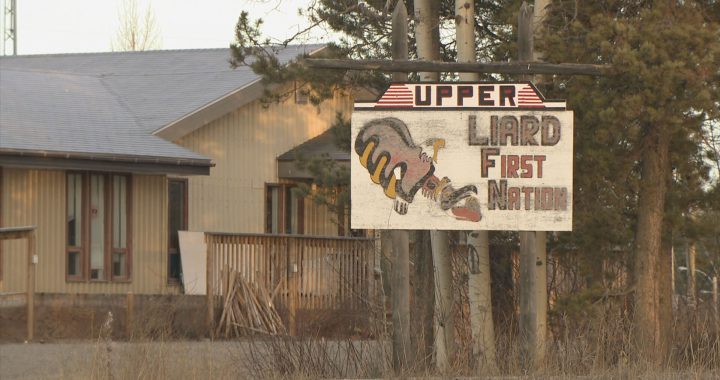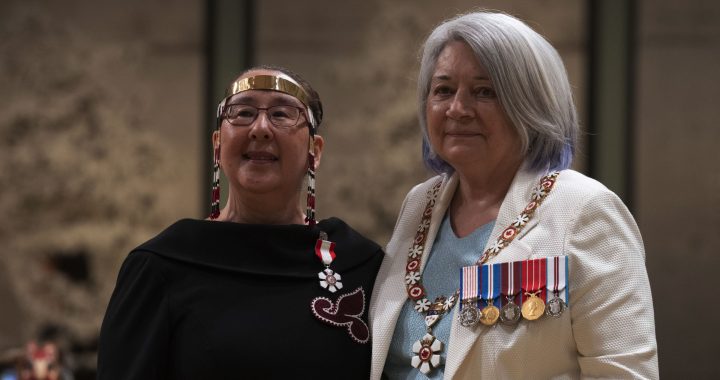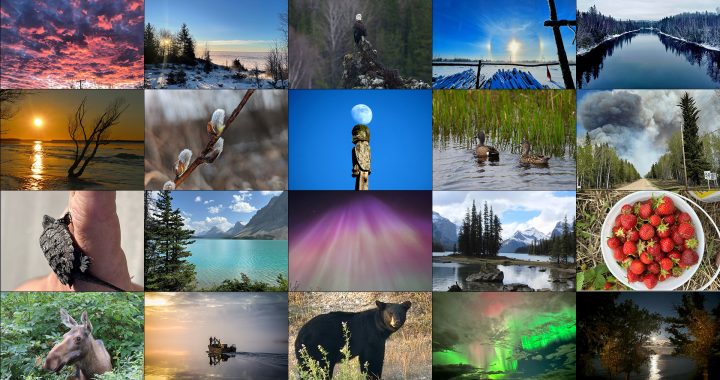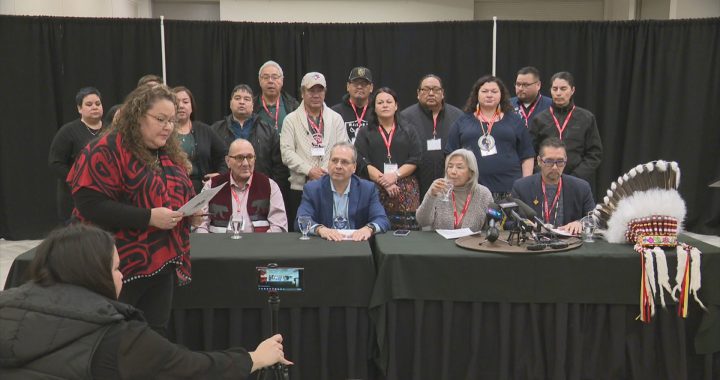APTN National News
The former mayor of Clyde River in Nunavut says that Prime Minister Justin Trudeau’s intentions to ban offshore oil and gas licensing in the Arctic is a good first step, but is wondering why fracking wasn’t mentioned.
“(Tuesday’s) announcement is an important first step. But it says nothing about the seismic blasting that my community is presently fighting against,” said Jerry Natanine. “The Trudeau government must make it clear – there should be no exploratory activity in our Arctic waters unless the Inuit have consented and unless the proposed activity meets rigorous, science-based environmental standards.”
Clyde River’s case is currently in the hands of the Supreme Court of Canada. On June 26, 2014, the National Energy Board approved Petroleum Geo-Services to conduct seismic testing in the waters of Baffin Bay and Davis Strait off the coast of Baffin Island in Nunavut. The testing would happen 24 hours a day, five months per year for five years, something the Hamlet of Clyde River and other interested parties oppose.
They feel the testing is harmful to marine mammals, including narwhal, ringed seal and the bowhead whale – something the Inuit rely on for their food and culture.
“Inuit, like all people, are in favour of development. But it must be done responsibly. It must be done ethically,” said Natanine. “It must be done with the consent of the people who are most affected.”
On Tuesday, the federal government announced plans to ban offshore oil and gas licensing in the Arctic, citing the need to protect the environment from future energy development, but the move was largely dismissed by industry observers as a weak gesture that won’t harm their interests.
The measure was part of a joint announcement with the United States, which designated the bulk of its federally controlled waters in the Arctic Ocean and certain areas in the Atlantic Ocean as indefinitely off-limits to future oil and gas leasing.
Prime Minister Justin Trudeau said Canada’s ban is intended to ensure a sustainable Arctic economy, preserve the region’s ecosystem and prevent future risks associated with offshore oil and gas activity – goals that earned applause from environmental groups such as Greenpeace and the World Wildlife Fund.
But experts pointed out that there are no drilling plans in the region now, suggesting that the ban is of little consequence.
Michael Byers, a University of British Columbia professor who recently published a book called “Who Owns the Arctic?”, said the only surprise in Ottawa’s announcement is that it provides for a five-year review.
Byers said the move seems to be politically motivated and is designed to show that Trudeau is protecting the environment despite a recent decision to sanction two oil pipelines – the Trans Mountain expansion and Line 3 replacement project.
“Closing the door to Arctic oil and gas helps to position himself on the climate change file by saying that there are limits in terms of the development of new oil and gas fields, therefore drawing a line in the sand from a climate change perspective,” he said.
“There’s no activity taking place in the Canadian Arctic right now, so saying ‘No’ doesn’t require anyone to stop.”
Last year, Imperial Oil applied to extend the expiry date on its licences to drill in the Beaufort Sea off the Northwest Territories from 2020 to 2028, citing insufficient time to conduct technical work and complete regulatory processes.
Byers said the federal ban means the Imperial licences can simply be allowed to expire, likely without liability for the federal government.
Imperial Oil spokeswoman Killeen Kelly said the company would not speculate on whether it would seek compensation for its licences if they aren’t extended.
The last oil well drilled in the Beaufort Sea off the Northwest Territories was completed in 2006 by Devon Canada.
Chris Seasons, who was president of the company at the time, said Tuesday’s decision to close the Arctic to drilling may hurt companies with interests there in the long run, but won’t cause any immediate pain.
“People always like to have the maximum number of options available as technology changes and as views change on the commerciality of some of those resources, but I don’t think it has a big impact on Canadian companies at this juncture,” Seasons said.
He said other companies made discoveries in the Arctic in the 1970s and 1980s, but those resources can’t compete for investment because they are less environmentally risky and much closer to consumer markets.
Byers said oil and gas production in the Arctic doesn’t make sense economically or environmentally, estimating that benchmark U.S. oil prices would have to triple to above US$150 per barrel to make oil from the region profitable.
He said the extremely short drilling season represents a huge and costly risk for companies that explore there, adding that transportation is a “nightmare.”
Trudeau also said his government will encourage the use of energy efficiency measures and renewable power in an effort to reduce reliance on diesel in Northern communities.
The Canadian and U.S. governments said they are launching processes to identify sustainable shipping lanes throughout Arctic waters, including the Beaufort and Chukchi Seas.
– with files from The Canadian Press










